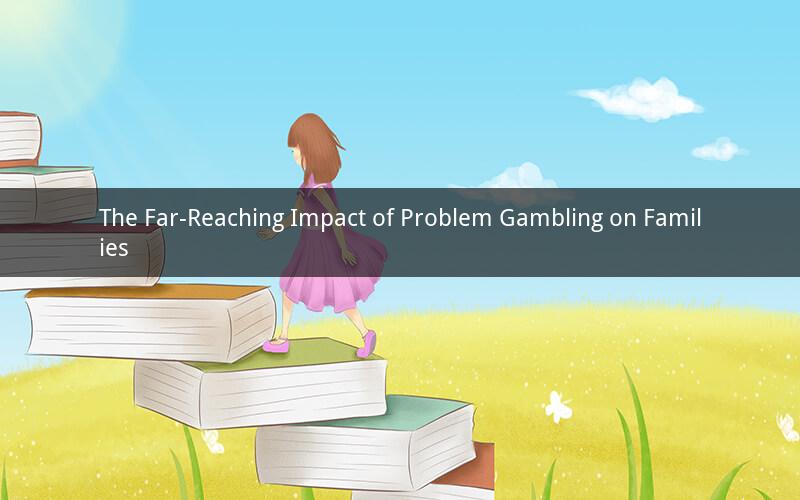
Problem gambling, often referred to as gambling disorder, is a significant public health concern that can have profound effects on the lives of individuals and their families. This article delves into the various ways in which problem gambling affects families, highlighting the emotional, financial, and social consequences.
1. Emotional Consequences
One of the most immediate and profound impacts of problem gambling on families is the emotional turmoil it creates. Families often experience feelings of stress, anxiety, and despair as they try to cope with the behavior of their loved one. Here are some of the emotional consequences:
a. Betrayal: Family members may feel betrayed by the individual's actions, leading to a breakdown in trust and communication.
b. Guilt: Family members may internalize the problem and feel guilty for not being able to prevent it or help their loved one.
c. Depression: The stress of dealing with a problem gambler can lead to depression, both for the individual and the family.
d. Anger: Family members may become angry and frustrated, especially if they feel they have been taken advantage of financially.
2. Financial Consequences
Problem gambling can have severe financial implications for families. The individual's gambling addiction can lead to the depletion of savings, the sale of assets, and even the accumulation of debt. Here are some of the financial consequences:
a. Loss of Income: The individual may miss work due to gambling, leading to a loss of income for the family.
b. Debt Accumulation: The individual may accumulate debt, which can lead to legal issues and financial strain on the family.
c. Selling Assets: To fund their gambling habits, the individual may sell assets, such as property or investments, which can have long-term financial consequences for the family.
d. Borrowing Money: Family members may have to borrow money to support the individual or cover the costs of their gambling-related expenses.
3. Social Consequences
Problem gambling can also have significant social consequences for families. The individual's behavior may lead to strained relationships with friends, family, and colleagues. Here are some of the social consequences:
a. Isolation: The individual may withdraw from social activities, leading to isolation and a loss of support networks.
b. Relationship Strain: Marriages and other intimate relationships may suffer as a result of the gambling addiction, leading to separation or divorce.
c. Employment Issues: The individual's gambling addiction may affect their job performance, leading to demotion or termination.
d. Legal Issues: The individual may face legal consequences, such as arrest or imprisonment, which can further strain family relationships.
4. Coping Strategies
Families affected by problem gambling often develop coping strategies to deal with the challenges they face. Here are some common coping strategies:
a. Seeking Support: Families may seek support from friends, family, or professional organizations dedicated to helping those affected by gambling addiction.
b. Education: Learning about problem gambling and its effects can help families understand the situation better and develop more effective coping strategies.
c. Setting Boundaries: Families may need to set boundaries to protect themselves from the negative impacts of the individual's gambling behavior.
d. Treatment: Encouraging the individual to seek treatment for their gambling addiction can help improve the family's situation.
5. Conclusion
Problem gambling has far-reaching effects on families, impacting their emotional, financial, and social well-being. Understanding the consequences of problem gambling can help families develop effective coping strategies and seek the support they need to navigate this challenging situation.
Questions and Answers:
1. How can problem gambling affect the mental health of family members?
Answer: Problem gambling can lead to stress, anxiety, depression, and guilt in family members, as they cope with the emotional turmoil caused by the individual's addiction.
2. What are the financial consequences of problem gambling for families?
Answer: Financial consequences include the depletion of savings, the sale of assets, debt accumulation, and the loss of income due to the individual's gambling addiction.
3. How can problem gambling strain social relationships within a family?
Answer: Problem gambling can lead to isolation, strained relationships with friends and family, and legal issues that can further damage social connections.
4. What coping strategies can families use to deal with the impact of problem gambling?
Answer: Families can seek support from friends, family, or professional organizations, educate themselves about problem gambling, set boundaries, and encourage the individual to seek treatment.
5. How can families support a loved one with a gambling addiction?
Answer: Families can offer unconditional support, encourage the individual to seek professional help, and create a safe and supportive environment that promotes recovery.